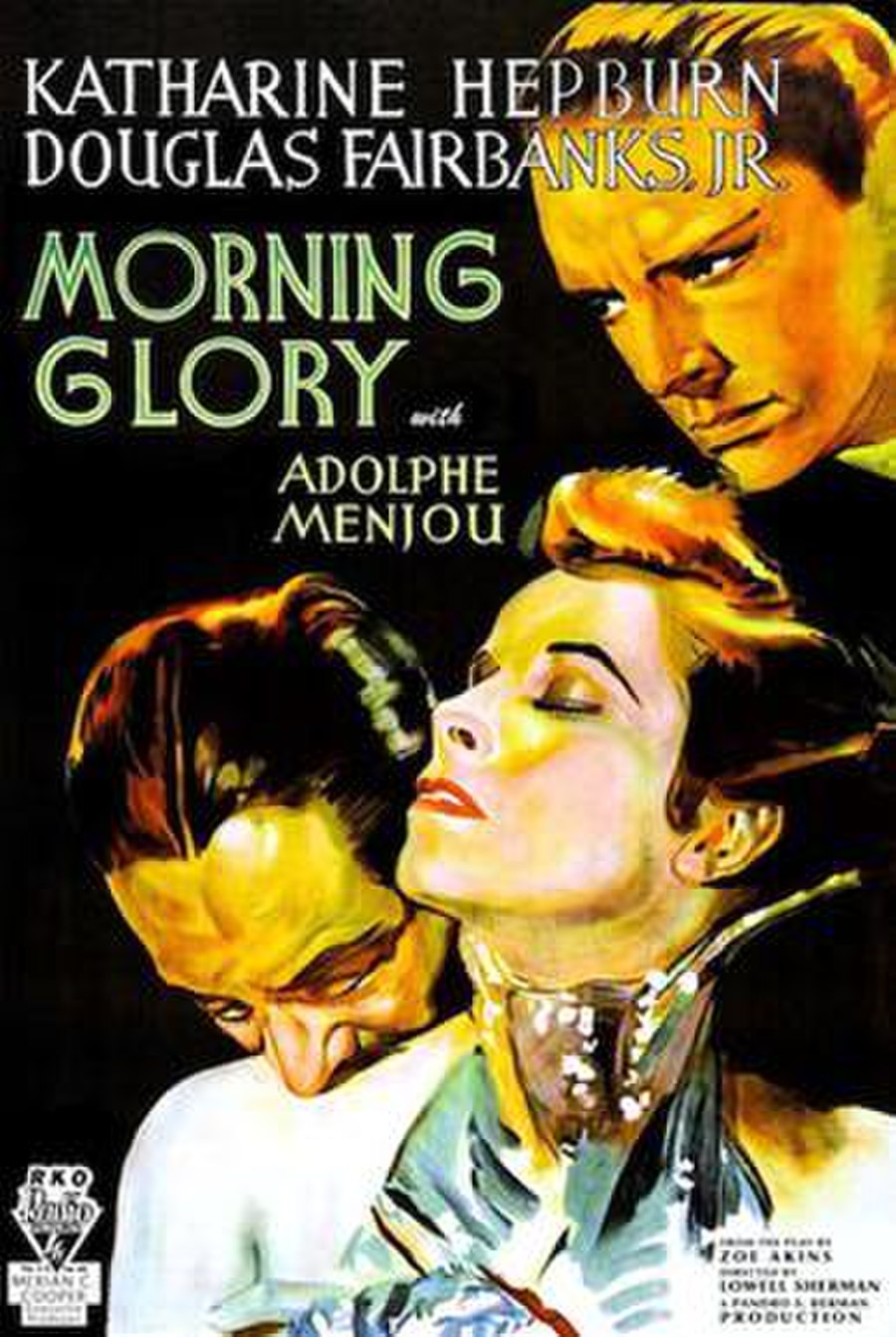
Morning Glory
Morning Glory is a 1933 American Pre-Code drama film which tells the story of an eager would-be actress and her journey to stardom, and her gains and losses. The picture stars Katharine Hepburn, Douglas Fairbanks Jr., and Adolphe Menjou, was adapted by Howard J. Green from a then-unproduced stage play of the same name by Zoë Akins, and was directed by Lowell Sherman. Hepburn won her first Academy Award for Best Actress for this movie. Morning Glory was remade in 1958 under the title Stage Struck.
Plot
Eva Lovelace is an aspiring performer from a small town who dreams of making it big on Broadway. Despite attending numerous auditions, she hasn't been given an opportunity yet. At the management office of the Easton Theatre, star actress Rita Vernon, known for her diva behavior and alcohol problem, negotiates a deal with the theater owner and producer, Louis Easton. Rita accepts a small role in an upcoming play in exchange for her pick of roles in the next production. Eva impresses Robert Hedges, an experienced actor, who agrees to help her. Playwright Joseph Sheridan is also captivated by Eva's vibrant personality. Months pass, and Eva struggles to find significant roles while moving frequently due to financial difficulties.
Awards
More details
| author | Howard J. Green |
|---|---|
| award | Academy Award for Best Actress |
| contentLocation | New York City |
| director | Lowell Sherman |
| editor | William Hamilton |
| genre | drama |
| keywords | act broadway dressing room inebriate morning move opening night road to stardom rock rocky road small town true love |
| musicBy | Max Steiner |
| nomination | Academy Award for Best Actress |
| producer | Pandro S. Berman |
| productionCompany | RKO Radio Pictures |
| publisher | RKO Radio Pictures |

